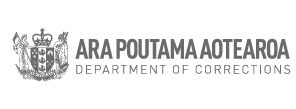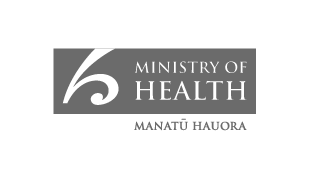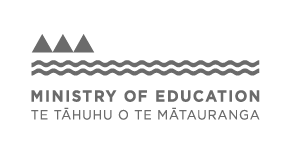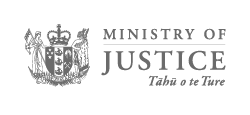This website is under construction while we change our name. If you have any questions, email: contact@tepunaaonui.govt.nz
Te Aorerekura outlines 6 key changes or 'shifts' to eliminate family violence and sexual violence in Aotearoa New Zealand.
Each of the shifts in this Strategy are interconnected, and the depend on the wider changes across Aotearoa that will help address the drivers of violence.
The Action Plan outlines the specific actions government agencies and communities will carry out to achieve these shifts:
Tokotoru describes three dimensions that must be addressed to enhance individual and whānau wellbeing:
This shift indicates the government’s ongoing commitment to changing the social conditions, structures and norms that perpetuate harm.
Actions 1-4 of the Action Plan will enable us to adopt a strength-based wellbeing approach. These actions are led by different Joint Venture agencies.
A Government investment plan will coordinate a range of responses and activities to reduce harm sooner and strengthen safe healing pathways. This includes primary prevention, healing, responses, the workforces, relationships with tangata whenua, communities and the sectors and the learning system.
Activity
Integrated, community-led responses that are supported by the investment plan (see Action 1) are key to delivering Te Aorerekura. They will enable agencies and communities to build capability to deliver effective services and responses.
Activities from December 2021
5 existing community responses have been identified as opportunities to work with and learn from.
Te Puni Kōkiri will support wāhine Māori to share and develop cultural practices that support whānau and whakapapa to heal and overcome trauma from violence. Wāhine Māori impacted by violence should also be able to access integrated and inclusive responses to enable their safety.
This can include learnings from the Mana Wāhine Inquiry(external link).
Activities from December 2021
A tuakana-teina based initiative focusing on developing and nurturing emerging wāhine Māori leaders in the family violence and sexual violence professional and vocational fields in Aotearoa. This will help women, wāhine Māori, whanau and communities to access safe services and create change. It will also help to develop skilled and culturally competent workforces.
Activities
For more information, you can reach out to the Joint Venture and other support services through the Contact us page.
This shift is about bringing together and strengthening relationships between tangata whenua, central and local government, the specialist sector, communities and businesses to plan the responses and actions needed to eliminate violence.
Government agencies will work to streamline processes and remove system barriers in the family violence and sexual violence sector.
Agencies will also develop shared infrastructure that supports continuous learning, co-ordinating a research and evaluation plan for family violence and sexual violence, and a process for continuous improvement through the analysis and sharing of data and insights to inform service development.
Actions 5-9 of the Action Plan will enable us to develop sustainable, trust-based relationships and commissioning decisions grounded in Te Tiriti and share evidence on what works.
These actions are led by different Joint Venture agencies.
Government, communities, tangata whenua and specialists will work together and give feedback to improve family violence and sexual violence responses, healing and prevention. Government will focus on developing trusted relationships and safe ways of working
Activities
Government agencies will implement social sector commissioning principles and approach to the 5 Integrated Community-led Responses (ICR) to ensure family violence and sexual violence services are working for them. Implementation will be ongoing.
Activities
Regional Public Service Commissioners will support Government and communities to work better together and implement family violence and sexual violence solutions for people.
Activities
Establish a tangata whenua advisory group to give advice to the Minister for the Prevention of Family Violence and Sexual Violence to make positive change. Implementation will be ongoing.
Activities
Establishing an annual hui will help government, tangata whenua, community and specialists come together to review the progress of Te Aorerekura, share information, and agree on next steps.
The 2022 annual hui for Te Aorerekura took place on 26-27 July. Find out more about the 2022 annual hui(external link). You can also view the korero from the hui on the Te Puna Aonui YouTube channel(external link).
Activities
For more information, you can reach out to the Joint Venture and other support services through the Contact us page.
Different communities need different kinds of support to eliminate family violence and sexual violence.
In order to provide the right help to different people, we need:
Actions 10-15 of the Action Plan will ensure specialists, general, and informal workforces are equipped to safely respond, heal and prevent, and enable wellbeing.
These actions are led by different Joint Venture agencies.
Implement frameworks, tools and training for specialist, general, and voluntary workforces co-designed by and for tangata whenua, Pacific peoples, disabled people, LGBTQIA+, older people, ethnic, migrant and refugee communities, and children and young people.
Activities:
Government agencies will develop and implement capability frameworks that help workforces understand how to work in a trauma- and violence-informed way, and how to recognise and respond to family violence and sexual violence.
Activities
Build tools for people to recognise family violence, provide safe information and support, and connect with the right services.
Activities
Contract and train national and regional practitioners for primary prevention of family violence and sexual violence (linked with Action 2). This will help us develop a prevention system that focuses on prevention and strengthening, providing coordintion, connection and capability building to reduce drivers of violence for communities.
Activities
Develop a workforce that supports the needs of children and young people impacted by family violence and sexual violence. This will be co-designed with and for tangata whenua, disabled people, Pacific communities, LGBTQIA+, and ethnic, refugee and migrant communities.
Activity from December 2021
Train Ministry of Justice staff, the legal profession, and other people who work in court to better work with and support people impacted by violence.
Activities
For more information, you can reach out to the Joint Venture and other support services through the Contact us page.
Strengthening prevention includes building strong positive cultural identities, pro-social peer connections, promoting gender equity, and support for new parents. These can all contribute to fewer people using violence.
The first 1,000 days of a child’s life lay the foundation for their future. Children are most responsive to their experiences and environment. This is an effective time to support parents and whānau with strengthening and preventive interventions, with potential to improve long term outcomes and break cycles of intergenerational disadvantage.
Actions 16-26 of the Action Plan will enable us to invest in a Te Tiriti-based primary prevention strengthening model that protects people from family violence and sexual violence. These actions are led by different Joint Venture agencies.
Government agencies adopt the Te Tiriti-based family violence and sexual violence Primary Prevention System Model that reflects the Tokotoru model.
Activities
Co-develop and share a ‘primary prevention toolkit’ for communities that focuses on healthy relationships for people of all ages.
Activities
Refresh sections of the New Zealand Curriculum and Te Marautanga o Aotearoa to include teaching about healthy relationships. This will support workforce development and the production of teaching and learning resources.
Activities
Government and whānau, hapū and communities design approaches for tamariki rangatahi and whānau to know about mana-enhancing and tapu-enriched relationships to support healthy, consensual relationships.
Activities
Design and build a nationwide community prevention network with a range of functions to promote healthy consensual relationships and oranga whakapapa with communities across Aotearoa New Zealand.
Activities
Develop and continue targeted campaigns for communities to promote safe, positive and equal relationships, behaviour changes, awareness and prevention of family violence and sexual violence
Activities
Establish a large scale, multifaceted sexual violence primary prevention communications and social media campaign, guided by tea o Māori, to promote healthy relationships and oranga whakapapa.
Activities
Develop prevention programmes to meet the needs of ethnic communities, including new migrant and refugee communities
Activities
Develop a ‘co-commissioning model’ of early years primary child health and maternal mental health services. This will connect with social services in South Auckland and leverage off the Place Based Initiative.
Activity
Complete trials to support young children (0-6 years) in early learning services to understand healthy relationships, how to seek help, and access tailored services. This includes a 12-month pilot.
Activities
Design approaches with whānau, hapū and communities to prevent child sexual abuse. Develop capability frameworks and support to enable child sexual abuse prevention.
Activities
For more information, you can reach out to the Joint Venture and other support services through the Contact us page.
Te Aorerekura establishes an ongoing commitment to safe, integrated services that meet the holistic needs of those impacted by violence and supports accountability and behaviour change for people who use violence.
Response services must be safe, accessible and available earlier in the places where people are, provided by trusted people, and with culturally appropriate and safe approaches. Responses to those who use violence must hold them to account while supporting change and healing.
Actions 27-32 of the Action Plan will enable us to provide safe, accessible and integrated responses. These actions are led by different Joint Venture agencies.
Actions to ensure safe and integrated responses meet specific needs, do not perpetuate trauma, and achieve safety and accountability.
Design and implement guidelines and information about court proceedings that involve people impacted by family violence and sexual violence. This will align with the Te Ao Mārama(external link) vision for the District Court.
Activities
Develop and expand the Safeguarding Framework and interagency safeguarding adults from abuse approach (SAFA) to improve prevention, responses and reporting on forms of abuse, neglect or harm of vulnerable adults.
Activities
Government agencies and service providers will work together with communities and specialists to develop a plan to fill gaps in family violence response services.
Activities
Government agencies and service providers will work together with communities and specialists to develop a plan to fill gaps in sexual violence response services.
This includes working with providers of the Sexual Abuse Assessment Treatment Services (SAATS(external link)) and Non-Fatal Strangulation Service.
Activities
Project Whetū delivers a national case management system that supports integrated case management for crisis responses, and support for ongoing wellbeing.
Activities
Improve the Family Start(external link) service to offer more services, reduce whānau worker caseloads, and improve culturally appropriate responses.
Activities
For more information, you can reach out to the Joint Venture and other support services through the Contact us page.
Trauma is ongoing for people impacted by violence. Te Aorerekura sets out a need for more appropriate, tailored specialist and whānau-centred healing, recovery, and restoration services.
This is essential to address the intergenerational trauma of childhood exposure to family violence and sexual violence. Many people who use violence have experienced trauma as a child. This trauma is often unaddressed and contributes to the choices they make to use violence as adults.
Direct experience of violence, or exposure to it, has negative impacts on children and young people’s health, education, social development, and future economic wellbeing. People impacted by sexual violence experience significant physical and mental health challenges including impaired personal relationships and drug and alcohol misuse. These can be compounded as children and young people transition into adulthood.
Actions 33-37 of the Action Plan will enable us to increase capacity for healing, and acknowledge and address trauma for people and whānau. These actions are led by different Joint Venture agencies.
Work together with communities, tangata whenua, and specialists to map and understand available services and the gaps and opportunities to improve healing across Aotearoa New Zealand.
Activities
Work together to create national training and education programmes for parents, caregivers and whānau to recognise and respond to harmful sexual behaviours exhibited by children/young people.
Activities
Design regionally based, tangata whenua-led services by local kaupapa Māori suppliers for people with mental health injuries from sexual violence. This is to ensure tangata whenua have greater access to services, improved experiences of ACC care, and better health outcomes.
Activities
Extend and expand whānau-centred models to more communities to support kaupapa Māori service providers to work with whānau experiencing family violence
Activities
Extend and expand the Ngā Tini Whetu(external link) initiative to strengthen families and improve the safety and wellbeing of children through Whānau Ora(external link) and other agency funding.
Activities
For more information, you can reach out to the Joint Venture and other support services through the Contact us page.
Last modified:









